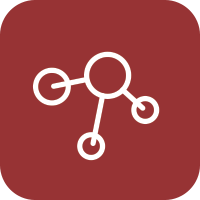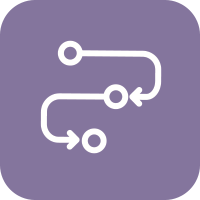Informed discussion on topical trends
We are facing exponential change in all spheres of life. Whether it is digital disruption or structural changes, cultural paradigm shifts or more inclusive definitions of success – new ways of thinking and responding are required. By taking notice of the patterns we see emerging, and identifying the tipping points that may occur along the way, we can at least be prepared for what might lie ahead.
Tātai Aho Rau Core Education’s annual Ten Trends report helps educators and leaders to consider how they might adapt and prepare in their learning settings to address the challenges of the future.
Emerging patterns of influence
Each year, Tātai Aho Rau’s experienced educators, digital technology experts and researchers identify emerging patterns influencing these key aspects of education in Aotearoa:
-
Cultural

The culture of an organisation, and its community, influences every aspect of how it functions. In the context of learning communities, culture is a combination of its:
- peoples
- stories of place and what happened there
- beliefs and perceptions
- relationships and attitudes
- written and unwritten rules
- the physical and emotional safety of ākonga
- the orderliness of learning settings and public spaces
- the degree to which a learning community embraces and celebrates diversity.
Influences that affect any aspect of this mix will likely have an impact on the overall culture of that organisation or community. -
Technology
 In every part of our lives, technology is reshaping expectations and enabling new possibilities. Emerging technologies are very different to what we have experienced, requiring us to adapt to digital change in new and more sustainable ways.
In every part of our lives, technology is reshaping expectations and enabling new possibilities. Emerging technologies are very different to what we have experienced, requiring us to adapt to digital change in new and more sustainable ways.The pace of change driven by new technologies and technological advances is rapid and may even accelerate, meaning educators need to frequently update their skills.
When you add a new technology you don’t simply change something – you change everything.
-
Structural
 Learning settings are reliant on the structures that give them their identity, and serve to support what they do and the way they do it. The traditional mindset of where learning happens is being challenged, as learning communities around the world are having to respond to an increasingly diverse, and exponentially changing, society.
Learning settings are reliant on the structures that give them their identity, and serve to support what they do and the way they do it. The traditional mindset of where learning happens is being challenged, as learning communities around the world are having to respond to an increasingly diverse, and exponentially changing, society.In education, structural change may mean:
- the deep-reaching change that alters the way authority, capital, information, and responsibility flows in an organisation
- changes to physical structures (for example, innovative learning environments)
- changes to organisational structures (for example, leadership models, faculties, departments, syndicates)
- the emergence of completely new structures.
-
Process
 In business terms, process is a collection of related, structured activities that produce a specific outcome. It may be understood simply as "the way we do things" – which inevitably reflects our languages, cultures and identities.
In business terms, process is a collection of related, structured activities that produce a specific outcome. It may be understood simply as "the way we do things" – which inevitably reflects our languages, cultures and identities.Historically, educational institutions have been very process-driven; enrolment, curriculum, teaching and learning, assessment, and graduation all involve a number of processes.
Processes provide order, create efficiency and ensure everything is done in a timely and consistent manner.
-
Economic
 The way we generate wealth and the skillsets required to do so are fundamental to an economy. In the past, economic activity was determined by natural resources, labour and capital. This view is now challenged, as we consider the value of things such as technology and creativity, as well as alternative concepts such as that of a 'knowledge economy'.
The way we generate wealth and the skillsets required to do so are fundamental to an economy. In the past, economic activity was determined by natural resources, labour and capital. This view is now challenged, as we consider the value of things such as technology and creativity, as well as alternative concepts such as that of a 'knowledge economy'.
The Western focus on 'financial maximisation' has had a significant influence within education in Aotearoa. The Ten Trends Economic theme looks at how we are preparing young people for the world of work, and their contribution to the economy of the future. More recently however, the emphasis on sustainable practices and more inclusive ways of understanding 'success' highlight some significant changes ahead in this area.